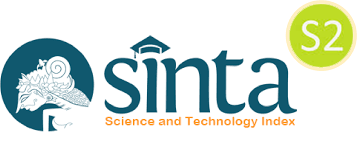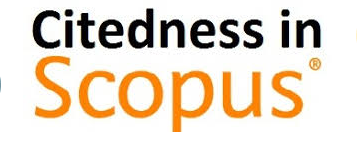Environmental Justice in Intra Generations: An Overview of Aristotle's Distributive Justice to Coal Mining
DOI:
https://doi.org/10.18196/iclr.v3i1.11234Keywords:
coal mining, distributive justice, one (intra) generation, sustainable developmentAbstract
Indonesia is a country with abundant natural resources, ranging from sand. Tin, copper, coal, iron ore to gold. Therefore, the State should provide environmental justice to create reserves with wise and sustainable management of natural resources. This study uses a doctrinal method in order to answer the problem under study. This study will examine how Aristotle's distributive justice can sharpen the concept of justice for coal mining management. This study will focus on environmental justice in intra-generational terms in terms of Aristotle's distributive justice to coal mining. Protection of access (conservation of access) reflects the allocation of rights and access to natural resources balanced between different generations and fellow members of the current generation. Thus, access to protection provides fair and non-discriminatory rights for every citizen of the current generation to use environmental resources. However, in using these resources, each member of the current generation has an obligation (equitable duties) to ensure that his actions will not reduce future generations' access to these resources. The state through mining or environmental policies has not provided justice for the community, where the community accepts more risks such as social injustice, environmental and health harm from coal mining activities than receiving the benefits.
References
Books and books chapter
ApeldoornL. J. V. (1996). Pengantar Ilmu Hukum. Cetakan Ke Dua Puluh Enam. Jakarta: Pradnya Paramita.
Azheri, B. (2016). Prinsip Pengelolaan Mineral dan Batu Bara. kajian Filosifis terhadap Undang Undang No 4 Tahun 2009. Jakarta: PT. Rajawali Pers.
Carson, R. (2002). Silent Spring. US: A Crest Book.
Friedrich, C. J. (2004). Filsafat Hukum Perspektif Historis. Bandung: Nuansa dan Nusamedia.
Garner, B. A. (2009). Black Law Dictionary. 9th edition. U.S.A. Thompson West Group.
Gunawan, Y. (2021). Hukum Internasional: Sebuah Pendekatan Modern. Yogyakarta. LP3M UMY.
Nasution, B. J. (2014). Kajian Filosofis Tentang Konsep Keadilan dari Pemikiran Klasik Sampai Pemikiran Modern. Yustisia Vol. 3 (2) May – August.
Rahmadi, T. (2011). Hukum Lingkungan di Indonesia. Jakarta. RajaGrafindo Persada.
Sands. P. (1995). Principles of International Environmental Law: Frameworks, Standards, and Implementation. Manchester: Manchester University Press.
Schlosberg, D. (2007). Defining Environmental Justice Theories, Movements, and Nature. USA: Oxford University Press.
Subhi, A. M. (2001). Filsafat Etika. Jakarta: PT. Serambi Ilmu Semesta.
Turner, R. K., Pearce, D. W. & Bateman. I. (1993). Environmental Economics: An Elementary Introduction. Baltimore: Johns Hopkins University Press.
Wibisana, A. G. (2017). Keadilan Dalam Satu (Intra) Generasi: Sebuah Pengantar Berdasarkan Taksonomi Keadilan Lingkungan. Mimbar Hukum Vol. 29. (2). June.
Wibisana, A. G. (2017). Perlindungan Lingkungan Dalam Perspektif Keadilan Antar Generasi: Sebuah Penelusuran Teoritis Singkat. Masalah - Masalah Hukum. Vol. 46 No. 1. January.
Yustika, A. E. (2013). Ekonomi Kelembagaan Paradigma. Teori. dan Kebijakan. Jakarta: Erlangga.
Journal article
Adlhiyati, Z. & Achmad. (2019). Melacak Keadilan dalam Regulasi Poligami: Kajian Filsafat Keadilan Aristoteles. Thomas Aquinas. dan John Rawls. Jurnal Hukum,Vol. 2 (2).
Amin, S. (2019). Keadilan Dalam Perspektif Filsafat Hukum Terhadap Masyarakat. El-Afkar Vol. 8 (1). January-June.
Awaliyah, S. (2014). Kontrak Karya Dan Perjanjian Karya Pengusahaan Pertambangan Batubara (KK/PKP2B). Jurnal Pendidikan Pancasila dan Kewarganegaraan. Vol. 27. (2).
Bostani, M, & Malekpoor, A. (2021). Critical Analysis of Kaldor-Hicks Efficiency Criterion with Respect to Moral Values. Social Policy Making and Incoherence. Advances in Environmental Biology. Vol 6 (7).
Chambers, D. & Guo, J-T. (2009). Natural Resources and Economic Growth: Some Theory and Evidence. Annals of Economics and Finance November.
Faiz, P. M. (2009). Teori Keadilan John Rawls. Jurnal Konstitusi. Vol. 6 (1).
Gunawan, Y. (2014). Transboundary Haze Pollution in the Perspective of International Law of State Responsibility. Jurnal Media Hukum. Vol. 21, No. 2. December
Helmi, M. (2015). Konsep Keadilan Dalam Filsafat Hukum dan Filsafat Hukum Islam. Mazahib. Vol. 25. (2) December.
Langhelle, O. (2000). Sustainable Development and Social Justice: Expanding the Rawlsian Framework of Global Justice. Environmental Values. Vol. 9 (3).
Lestari, D. (2016). Dampak Investasi Sektor Pertambangan Terhadap Pertumbuhan Ekonomi Dan Tenaga Kerja. Jurnal Ekonomi. Manajemen dan Akuntansi. Vol. 16. (3).
Maryanto. (2018). Membangun Lingkungan Yang Berbasis Konsep Berkelanjutan. Jurnal Meta-Yuridis Vol.1 (1).
Morrice, E. & Colagiuri, R. (2013). Coal mining, social, injustice and health: A universal conflict of power and priorities. Health & Place 19.
Muhdar, M. (2020). Rekonstruksi Basis Perhitungan Kerugian Negara dalam Peristiwa Tindak Pidana Korupsi pada Sektor Sumber Daya Alam. Jurnal de Jure Vol 12 (1) April.
Muhdar, M. et al. (2015). Implikasi Hukum Terhadap Praktik Pinjam Pakai Kawasan Hutan untuk Kegiatan Pertambangan Batubara. Halrev. Vol 1(3).
Muhdar, M., Nasir, M. & Nurdiana, J. (2020). Risk Distribution in Coal Mining: Fighting For Environmental Justice in East Kalimantan. Indonesia. Advances in Social Science. Education and Humanities Research. Vol. 499.
Nababan, R. K. (2017). Potensi PP KLHS dalam Mengintegrasikan Pembangunan Berkelanjutan dalam Penyusunan Kebijakan. Rencana. dan/atau Program. Jurnal Hukum Lingkungan Vol. 3 (2). March.
Qurbani, I. D. (2012). Politik Hukum Pengelolaan Minyak dan Gas Bumi di Indonesia. Jurnal Arena Hukum Vol. 6 (2). August.
Setyorini, S. N., Wirdyaningsih. & Hazna, C. A. (2019). Wakaf Lingkungan Hidup dalam Rangka Pelaksanaan Pembangunan Berkelanjutan Dan Penegakkan Keadilan Antargenerasi. Journal of Islamic Law Studies Edition 9 May 2019.
Stoker, K. & Stoker, M. (2012). The Paradox of Public Interest: How Serving Individual Superior Interests Fulfill Public Relations Obligation to the Public Interest. Journal of Mass Media Ethics. 27.
Tjakrawerdaja, S. (2008). Menunggu UU Induk Mengenai Perekonomian Nasional. Reform Review. Volume 2 (1) April-June.
Wowor, K. (2017). Penerapan Prinsip Berkelanjutan Sebagai Upaya Pencegahan Kerusakan Lingkungan Hidup Dibidang Pertambangan Ditinjau dari UU Nomor 4 Tahun 2009. Agri-Sosioekonomi Unsrat. Vol. 13 (2) July.
Downloads
Published
Issue
Section
License
By publishing with Indonesian Comparative Law Review, authors agree to the following terms:
1. Authors retain the copyright to their work and grant Indonesian Comparative Law Review the right of first publication, while also licensing the work under a Creative Commons Attribution License (CC BY 4.0). This license permits others to share the work, provided they acknowledge the author and the initial publication in this journal.
2. Authors may enter into separate agreements for non-exclusive distribution of the published version of their work, such as posting it to an institutional repository or including it in a book, with acknowledgement of its initial publication in this journal.
3. Authors are encouraged to share their work online, for example on institutional repositories or personal websites, both before and during the submission process. This practice can lead to productive exchanges and increased citation of published work.



